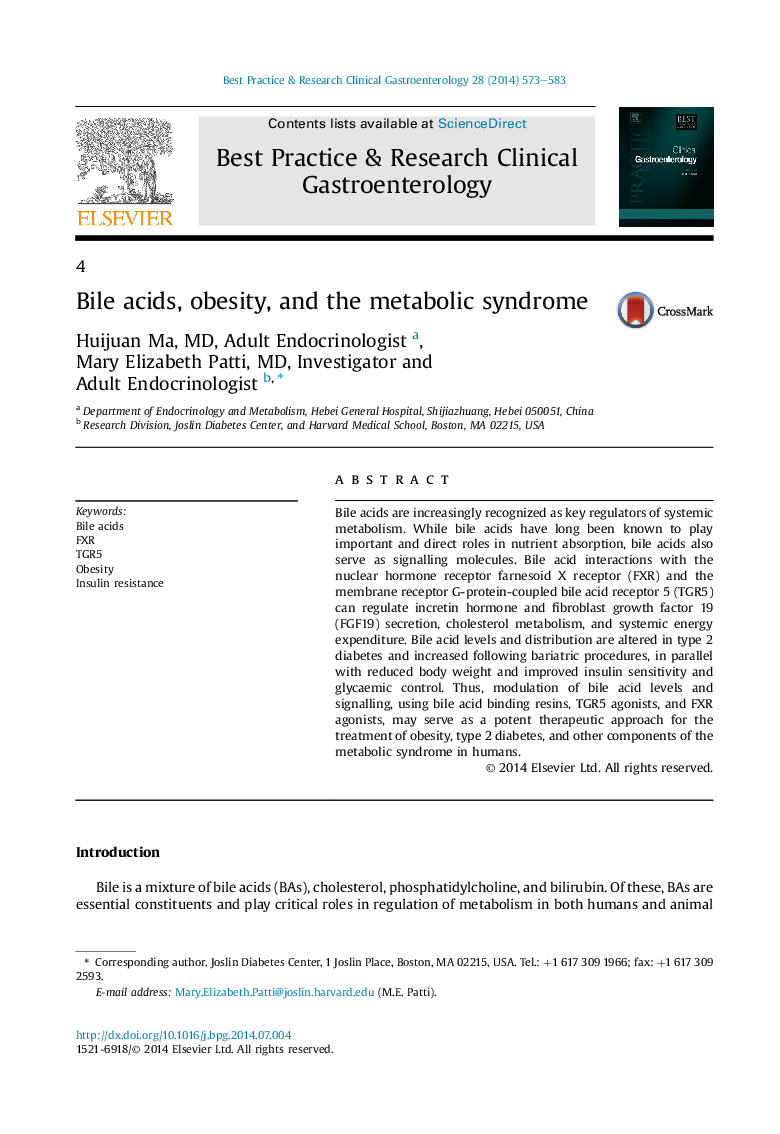| Article ID | Journal | Published Year | Pages | File Type |
|---|---|---|---|---|
| 3254017 | Best Practice & Research Clinical Gastroenterology | 2014 | 11 Pages |
Bile acids are increasingly recognized as key regulators of systemic metabolism. While bile acids have long been known to play important and direct roles in nutrient absorption, bile acids also serve as signalling molecules. Bile acid interactions with the nuclear hormone receptor farnesoid X receptor (FXR) and the membrane receptor G-protein-coupled bile acid receptor 5 (TGR5) can regulate incretin hormone and fibroblast growth factor 19 (FGF19) secretion, cholesterol metabolism, and systemic energy expenditure. Bile acid levels and distribution are altered in type 2 diabetes and increased following bariatric procedures, in parallel with reduced body weight and improved insulin sensitivity and glycaemic control. Thus, modulation of bile acid levels and signalling, using bile acid binding resins, TGR5 agonists, and FXR agonists, may serve as a potent therapeutic approach for the treatment of obesity, type 2 diabetes, and other components of the metabolic syndrome in humans.
